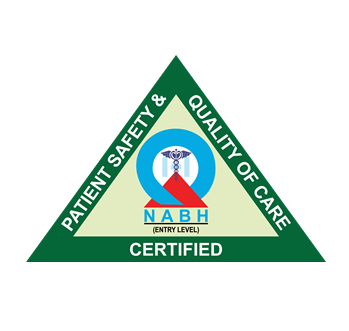
How to Choose the Right Hospital for Brain Cancer Surgery – 5 Things to Check
Getting diagnosed with brain cancer can be challenging, life-changing, and even mind-bending for some people. How do I get the best treatment for brain cancer? Is the doctor experienced and adept? Am I getting the best treatment? Treating brain cancer involves many steps. Selecting a hospital can be one of the more important steps that a patient can take to receive a standard of care that is personalised to their needs, including surgery, emotional counselling and active treatment.
The diagnosis of brain cancer not only affects the person with the illness. There are many different options available, and having to juggle the emotional impact and looking for a medical professional willing to help can be very difficult. Understanding the myriad medical and technological vocabulary and diagrams can be complicated to bear. During trialling times like this, having a friendly eye with extensive knowledge on the subject and having a proper facility can ease the burden.
We provide some important criteria for people seeking to get surgery in Bangalore or considering getting one done for their child. Understanding the symptoms, how the illness can be detected, and also how it can be cured is crucial; that is fundamentally the reason why we are sharing the symptoms of brain cancer with one and all.
What is Brain Cancer?
Brain cancer occurs when unusual cells develop cancerous growths in the brain. They can be either primary brain tumors, which develop in the brain, or secondary tumors, which originate from other parts of the body. Tumors can either be malignant, which grow rapidly or benign and grow slowly. In either case, brain tumors can be harmful as they may change how the brain functions. Due to the pressure from tumors, a wide variety of symptoms can be experienced based on the part that is irritated.
Observable Signs of Brain Cancer
As was the case in the previous sections, abnormal changes that occur in the body may be in the form of headaches. While the majority of headaches aren’t serious, some of the signs, such as the following, should be attended to promptly.
- Persistent or worsening headaches
- Nausea or vomiting, particularly in the morning
- Seizures, especially if not previously experienced
- Changes in vision or hearing
- Changes in the ability to maintain balance and coordination
- Changes the ability to speak and understand phrases
- Changes to a suddenly assumed personality or action
- Weakness on one side of the body
The above changes should not be left unattended, as they may have harmful effects. A brain specialist or neurologist must be consulted.
What Methods Are Used to Diagnose Brain Cancer?
A doctor would combine a number of different tests to get a picture of the tumor:
- Neurological examination: Evaluation of the nerves, reflexes, and coordination
- MRI and CT scan: Retrieve images of the brain
- Biopsy: A portion of the tumor is excised and analysed to determine if it is malignant
- PET scan: Sometimes performed to assess the spread of the metastasis or the response to the treatment
5 Things To Look Into Before Picking a Hospital for Brain Cancer Surgery
- Hospital Neuro Team’s Skills and Knowledge
With brain surgery, I don’t know if this is a chance a patient should take. The supporting team and the neurosurgeon’s in-depth skills and knowledge make a large difference. Look for:
- Specialised neurosurgeons for brain tumor resection
- Managing rare or complex tumors
- An interdisciplinary team that consists of radiology oncologists and rehabilitation specialists.
At many hospitals like the East Point Hospital, teams collaborate to offer comprehensive, multi-faceted care in a single location.
- Advanced Systems and Surgical Room Equipment
Through the use of modern devices, brain surgeries are a lot more precise now. A good hospital will offer intraoperative MRI or CT Scanners. The intraoperative CT and MRI will allow the surgeon to see the tumor more clearly throughout the surgery. Neuronavigation Systems are like a GPS for the brain allowing the surgeon to move to the next stages of surgery with precision. Also, other devices like Microsurgical Instruments are used for delicate exercises near vital parts of the brain. Also, there is a need for a surgery backup ICU and ER for proper patient recovery management.
Use of enhanced technologies decreases pre and post-surgery as well as intraoperative risks.
- Construction of Individual Treatment Plans
Every tumor is unique. A hospital should offer a treatment plan custom-made for:
- The size, type, and location of the tumor
- The age and general health of the patient
- The tumor’s genetic and molecular makeup
Additional care needed usually involves surgery, radiotherapy, and chemotherapy. In these cases, the medical team should include the patient and, if relevant, the family in the discussions, and all decisions should be made in clear, simple terms.
- Reconstruction of Post-Surgical Care and Rehabilitation
Your recovery will continue beyond the initial surgery date. Recovery from surgery will depend on the patient’s brain and speech, movement, and memory functions. Does the hospital offer:
- Physical Therapy
- Speech Pathology
- Occupational Therapy
- Regular imaging and oncologist checkups
These post-surgical care and rehabilitation services are essential and critical for complete recovery and are necessary for resuming normal activities.
- Support for Patients: Costs, Accessibility, and Area of Concern
Addressing an issue such as brain cancer surgery should be as straightforward as walking through the hospital’s doors. Patients frequently give off anxiety, and for the stressed patients, the right look and feel of the waiting room make all the difference. Patients should be treated with respect and the right care. Compassionate doctors will walk families through every imaging and explain every risk of surgery, all in simple words. Patients in distress appreciate when care is provided in a simple and practical manner, and every surgery comes with a lot of pre and post anxiety.
Also look for hospitals that:
- Have a care coordinator who is easily reachable
- Provides attentive mental health care
- Clearly explain charges that come with insurance policies
- Prompt responses for emergency services
Also, see that the hospital aids in acquiring second opinions and presents treatment options in a pressure-free manner.
Why Consider Bangalore for Brain Cancer Surgery?
Some of the best oncologists and neurosurgeons in the country are located in the city of Bangalore. The city offers:
- Experienced neurosurgeons who have trained in India and abroad
- India offers the best and the latest in imaging and research services.
- Quality healthcare that is affordable for both domestic and foreign patients.
- Easy access and comfortable stay options for patient families.
Every patient seeks a centre with compassion and precision, and East Point Hospital is a go-to option.
FAQs
Q1. What new treatments are available for movement disorders caused by brain tumors?
The advanced stages of brain tumors that involve the movements of the body may result in disorders such as tremors or stiffness. Newer methods of treatment include:
- Deep Brain Stimulation (DBS)
- Stereotactic Radiosurgery (non-invasive treatment for small tumors)
- Surgical Neuro-Rehabilitation Programs
These treatment methods are known to increase the patient’s quality of life.
Q2. Is it possible to completely cure brain cancer through surgery alone?
This is usually determined by the type and grade of tumor. Some benign tumors can be excised completely and will not recur, while malignant tumors may need to be managed with chemotherapy or radiation. Regular surveillance is required to assess for recurrence.
Q3. How long do patients stay in the hospital after brain cancer surgery?
On average, most patients will stay in the hospital for 5 to 10 days which is determined by the surgical time, patient factors, and complexity of the case, as well as physiotherapy and outpatient reviews that are scheduled in. The patient can expect the hospital team to support them through every step.
The challenges of brain cancer can feel overwhelming, but advanced treatment options and a caring medical team can make a significant difference. Hope is indeed possible, not only in combating the brain tumor but also in restoring the patient’s vitality. Patients battling brain cancer are encouraged to seek surgical options available in Bangalore at East Point Hospital, which is advanced and prioritises patient care. Having seasoned specialists at your side during such a fragile journey is incredibly helpful.

